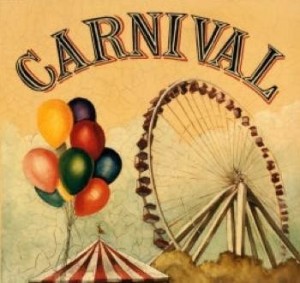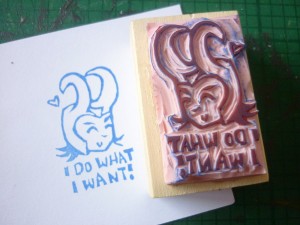I haven’t done completely scripted theatre in a long time, although I know many other improvisers do both. Every once in a while I think about auditioning but I have so many different improv projects on my calendar that I don’t think about it much. I’ve had some really fun experiences in scripted plays but I did often feel constrained by them. Even when a scripted role allows for some room to play around, you still generally need to maintain consistency for the sake of the overall direction & so that you don’t screw up your fellow performers by say, blowing a cue line. I greatly admire actors that are able to maintain a consistent scripted performance night after night while still keeping things fresh & breathing new life into every show. I never felt like I was too good at that.
There are many intangible things that I like about improv and I could wax on about them forever. For example, I’ve mentioned the collaborative aspect which I love. These things speak more to feelings & theory as opposed to concrete differences you see on a stage as an audience member and as a group of bloggers I imagine theory is something we’ll delve into often (especially me because I ramble A LOT). So instead, here is a list of relatively specific things that I like about improv in practice.
Improv…
1. gives you a chance to play a variety of different characters all the time, often in the same show. If you usually get cast in scripted shows as the funny side-kick or doting mother, improv provides the opportunity to play the action hero, the evil queen, the precocious child and on & on. The stage is your playground.
2. always has the chance to be “current” in that we can incorporate events of the day into a show the same night. Very satisfying at times.
3. travels well & helps you play with others. Dust-ups, Mash-ups, Duos – there are a number of different ways to throw improvisers into a show together who have never played with each other before & in many cases (festivals) haven’t even met prior to the show. Even though styles of play are different all over the world, most improvisers have a common language which allows them to jump right into doing a show together.
4. can incorporate anything happening in the space. From a cell phone ringing to the lights going out by accident, improv shows can not only comment on things going wrong in the space but can make those flukes an integral part of the scene, to the extent that it looks like the performers knew it was going to happen all along.
5. is shaped by the audience. If the crowd that night is responding to broader characters & poop humor – you can tailor the show thusly. If they seem to be intruged by witty dialogue, styles work, etc… then the show can go that way. While I’m not a huge poop fan myself, I really like that the style of theatre we do allows for the show to swing any direction we want.
6. gives the audience a voice. This is one of the more obvious ones but I’ll end with it because sometimes as a performer I forget how cool it is for the audience to participate. When an audience member gives a suggestion and then they get to watch a scene unfold that is so good it shoots the lights out – that’s a wonderful feeling. Even when the scene is simple or silly & goofy it’s really fun for them. Improvisers grouse sometimes about drunk or obnoxious audience members trying to mess with them and that does happen. However, for the most part I think audience members, even when they give poop suggestions, are trying to be helpful and want the show to succeed.
So there you go. Six reason and I’m sure there are many many more. Long live the ‘prov!





